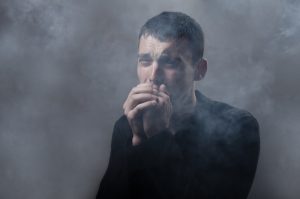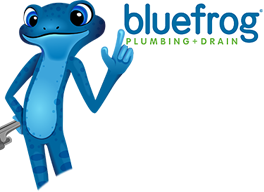
For the most part, your home’s hot water heater handles its business quietly and without issue. But, if your system has seen better days, it could have major repercussions on the health of your family. There are multiple ways in which a hot water heater can leak carbon monoxide into your home. For one, if the system is improperly installed or if the vents are blocked, carbon monoxide may slowly leak into the air supply. You’ll eventually feel sick and dizzy; the risk of death is always present with carbon monoxide.
Carbon Monoxide Leaks
If you have a gas water heater in your home that has been neglected for a long time, improperly installed, or poorly ventilated, it could leak carbon monoxide.
Carbon monoxide is an odorless, colorless gas produced by burning fuels, such as gas, during operation. If you do not have a carbon monoxide alarm in your home, you may not realize there is a leak until someone begins showing symptoms. These symptoms include headaches, dizziness, weakness, upset stomach, vomiting, chest pain, confusion, and worse.
If you suspect your hot water heater is leaking carbon monoxide, evacuate everyone from the house and call 911. If anyone is displaying signs of carbon monoxide poisoning, take them to an emergency room promptly. You do not want to mess around with a leak.
Once everyone is safe, call a professional plumber. A local plumbing service can repair the tank and help you clear the area of carbon monoxide.
Preventing Carbon Monoxide Leaks
Even if you provide regular maintenance, your water heater may cause some trouble over the years. Your system may rust, parts may wear out, or the entire system can fail. A water heater is only designed to last about 12 years, on average, depending on maintenance and repairs made.
Some key maintenance tips you may perform to prevent a carbon monoxide leak include:
- Flushing – Once per year, flush the tank of all water and remove any built-up sediment.
- Inspection – Again, once per year, you should schedule a thorough inspection from a plumbing professional. During this annual checkup, have them replace the anode rod every few years.
- Ventilation – Ensure your hot water heater has the proper ventilation in place to prevent any gas or carbon monoxide buildup in the room.
- Detector – Near your hot water heater, consider installing a carbon monoxide detector as an early warning sign against a leak.
If you suspect a carbon monoxide leak stemming from your hot water heater, immediately evacuate your family and contact a professional. You can call bluefrog Plumbing + Drain of NE Dallas for carbon monoxide tests and hot water heater repairs. We’ll send an experienced and certified technician to your doorstep within the hour.
Please call 210-876-1629 for hot water heater services in NE Dallas, TX!






 Free Diagnostic - With Paid Repair
Free Diagnostic - With Paid Repair

